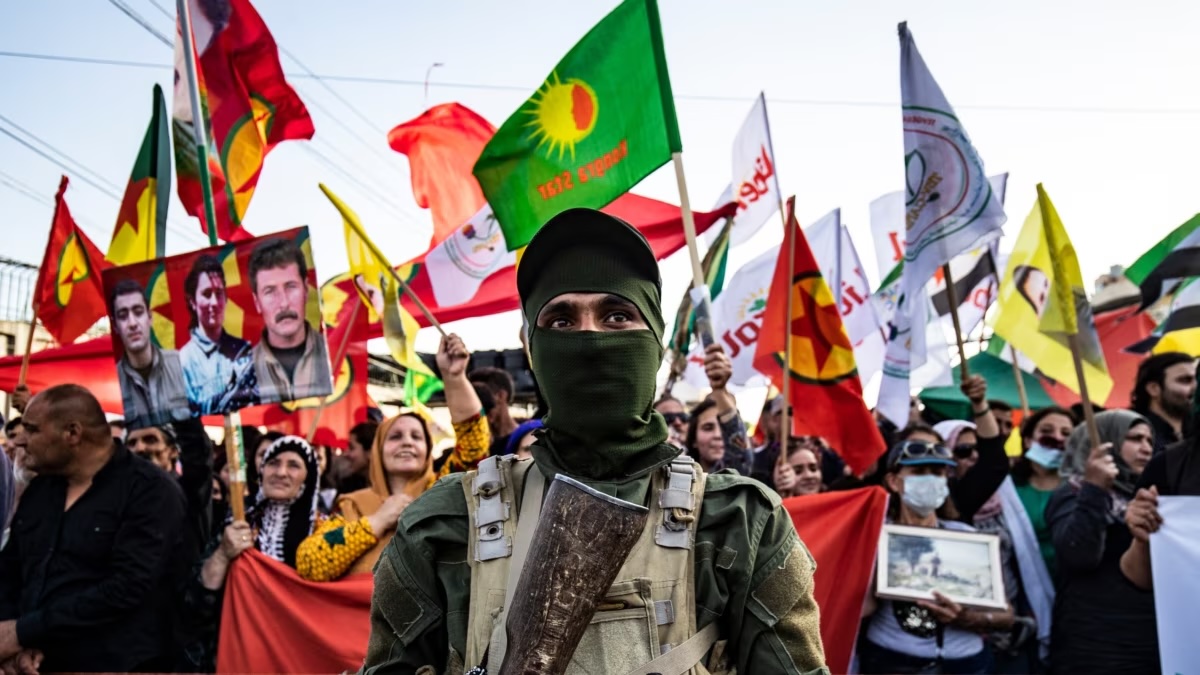
The Kurdish–Turkish conflict has been a significant and complex issue for decades, impacting countless lives and shaping regional dynamics. This ongoing struggle involves the Kurdish minority in Turkey seeking greater autonomy, cultural rights, and political recognition. The conflict primarily pits the Turkish government against the Kurdistan Workers' Party (PKK), a Kurdish militant group. Why has this conflict persisted for so long? The reasons are multifaceted, involving historical grievances, ethnic tensions, and geopolitical interests. Understanding this conflict requires delving into its roots, key events, and the perspectives of both sides. Here are 25 facts that shed light on this enduring conflict, providing a clearer picture of its causes, consequences, and current status.
Key Takeaways:
- The Kurdish–Turkish conflict began in 1984 when the PKK fought for Kurdish rights. It has led to over 40,000 deaths and impacted civilians, but also sparked cultural revival and solidarity efforts.
- The conflict has drawn international attention and affected neighboring countries. Despite challenges, there are hopes for peace through diplomatic efforts and the resilience of Kurdish culture.
Origins of the Kurdish–Turkish Conflict
The Kurdish–Turkish conflict has deep historical roots, involving complex political, social, and cultural dimensions. Here are some key facts to understand its origins:
- The conflict began in 1984 when the Kurdistan Workers' Party (PKK) launched an armed struggle against the Turkish state, seeking autonomy and rights for Kurds in Turkey.
- The PKK was founded in 1978 by Abdullah Öcalan, who became a central figure in the Kurdish nationalist movement.
- Kurds are the largest ethnic minority in Turkey, making up about 15-20% of the population, primarily residing in the southeastern region.
- The Turkish government has historically suppressed Kurdish identity, banning the Kurdish language and cultural expressions in various periods.
- The Treaty of Lausanne in 1923, which established the modern Turkish state, did not recognize Kurds as a distinct ethnic group, fueling discontent.
Key Events in the Conflict
Several significant events have shaped the Kurdish–Turkish conflict over the decades. Understanding these events provides insight into the ongoing struggle.
- In 1999, Abdullah Öcalan was captured by Turkish forces and sentenced to life imprisonment, leading to a temporary ceasefire by the PKK.
- The conflict saw a resurgence in 2004 when the PKK resumed its armed campaign, citing unmet demands for Kurdish rights.
- In 2013, peace talks between the Turkish government and the PKK began, raising hopes for a resolution.
- The ceasefire collapsed in 2015, leading to renewed violence and military operations in southeastern Turkey.
- The conflict has resulted in over 40,000 deaths, including civilians, PKK fighters, and Turkish military personnel.
Impact on Civilians
The Kurdish–Turkish conflict has had a profound impact on civilians, particularly in the southeastern region of Turkey.
- Thousands of villages have been destroyed or evacuated, displacing millions of Kurds.
- Human rights organizations have reported numerous cases of extrajudicial killings, torture, and forced disappearances.
- The conflict has severely disrupted education, healthcare, and infrastructure in affected areas.
- Many Kurds have sought asylum in Europe and other parts of the world due to the violence and persecution.
- The Turkish government has implemented strict security measures, including curfews and military checkpoints, affecting daily life for civilians.
International Involvement and Reactions
The Kurdish–Turkish conflict has drawn international attention and involvement, influencing regional and global politics.
- The United States and European Union have designated the PKK as a terrorist organization, complicating international support for Kurdish aspirations.
- Neighboring countries like Iraq, Syria, and Iran have Kurdish populations, making the conflict a regional issue with broader implications.
- The Syrian Civil War has added complexity, with Kurdish groups in Syria gaining autonomy and clashing with Turkish forces.
- International human rights organizations have criticized both the Turkish government and the PKK for violations of humanitarian law.
- Diplomatic efforts by various countries and organizations have aimed to mediate peace, though with limited success.
Cultural and Social Dimensions
Beyond the political and military aspects, the Kurdish–Turkish conflict has significant cultural and social dimensions.
- Kurdish culture, including language, music, and traditions, has faced suppression but also experienced a revival in recent years.
- Kurdish women have played a prominent role in the conflict, both as fighters in the PKK and as activists advocating for peace and rights.
- The conflict has influenced Turkish and Kurdish literature, cinema, and art, reflecting the struggles and aspirations of both communities.
- Education in the Kurdish language remains a contentious issue, with limited opportunities for Kurdish children to learn in their mother tongue.
- Despite the conflict, there have been instances of solidarity and cooperation between Turkish and Kurdish individuals and groups, highlighting the potential for reconciliation.
Final Thoughts on the Kurdish–Turkish Conflict
The Kurdish–Turkish conflict remains a complex and deeply rooted issue. Spanning decades, it has shaped the political, social, and cultural landscapes of Turkey and the Kurdish regions. Understanding the historical context, key events, and major players helps in grasping the ongoing struggles and aspirations of the Kurdish people.
This conflict isn't just about territorial disputes; it's about identity, autonomy, and human rights. While peace efforts have been made, lasting solutions require genuine dialogue and mutual respect. Awareness and education about this conflict can foster empathy and support for peaceful resolutions.
By learning about the Kurdish–Turkish conflict, we can better appreciate the challenges faced by those involved and advocate for a future where both communities coexist peacefully.
Frequently Asked Questions
Was this page helpful?
Our commitment to delivering trustworthy and engaging content is at the heart of what we do. Each fact on our site is contributed by real users like you, bringing a wealth of diverse insights and information. To ensure the highest standards of accuracy and reliability, our dedicated editors meticulously review each submission. This process guarantees that the facts we share are not only fascinating but also credible. Trust in our commitment to quality and authenticity as you explore and learn with us.
